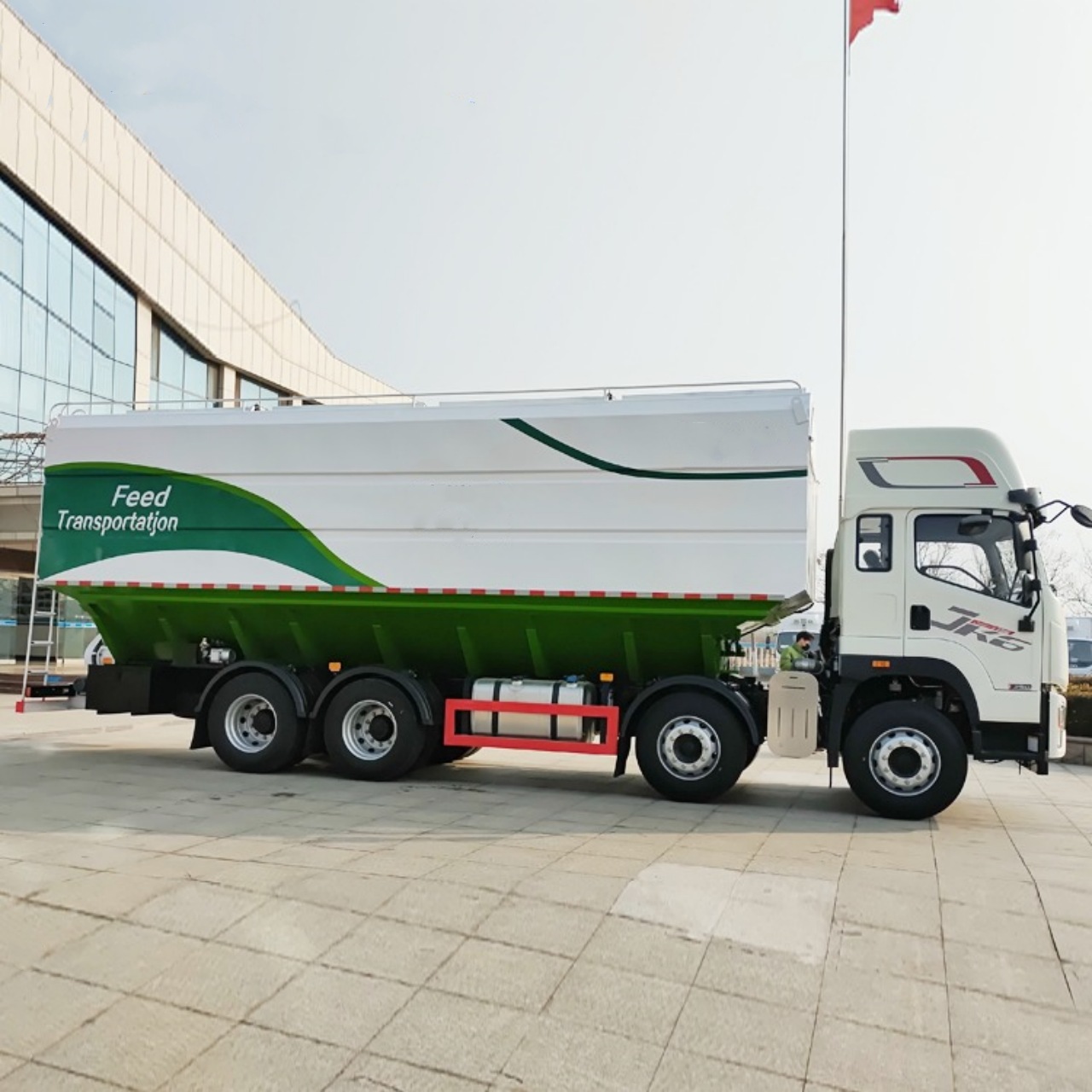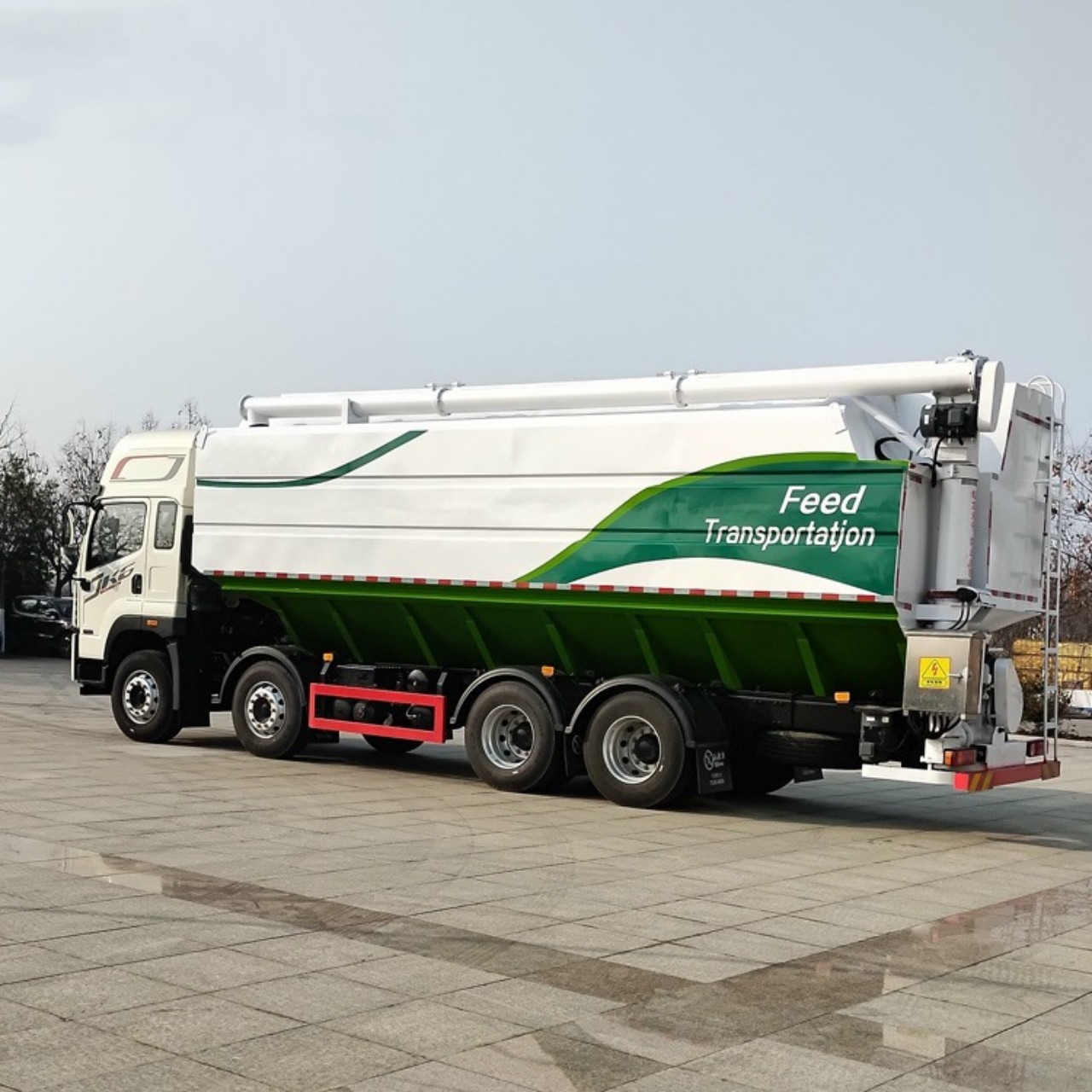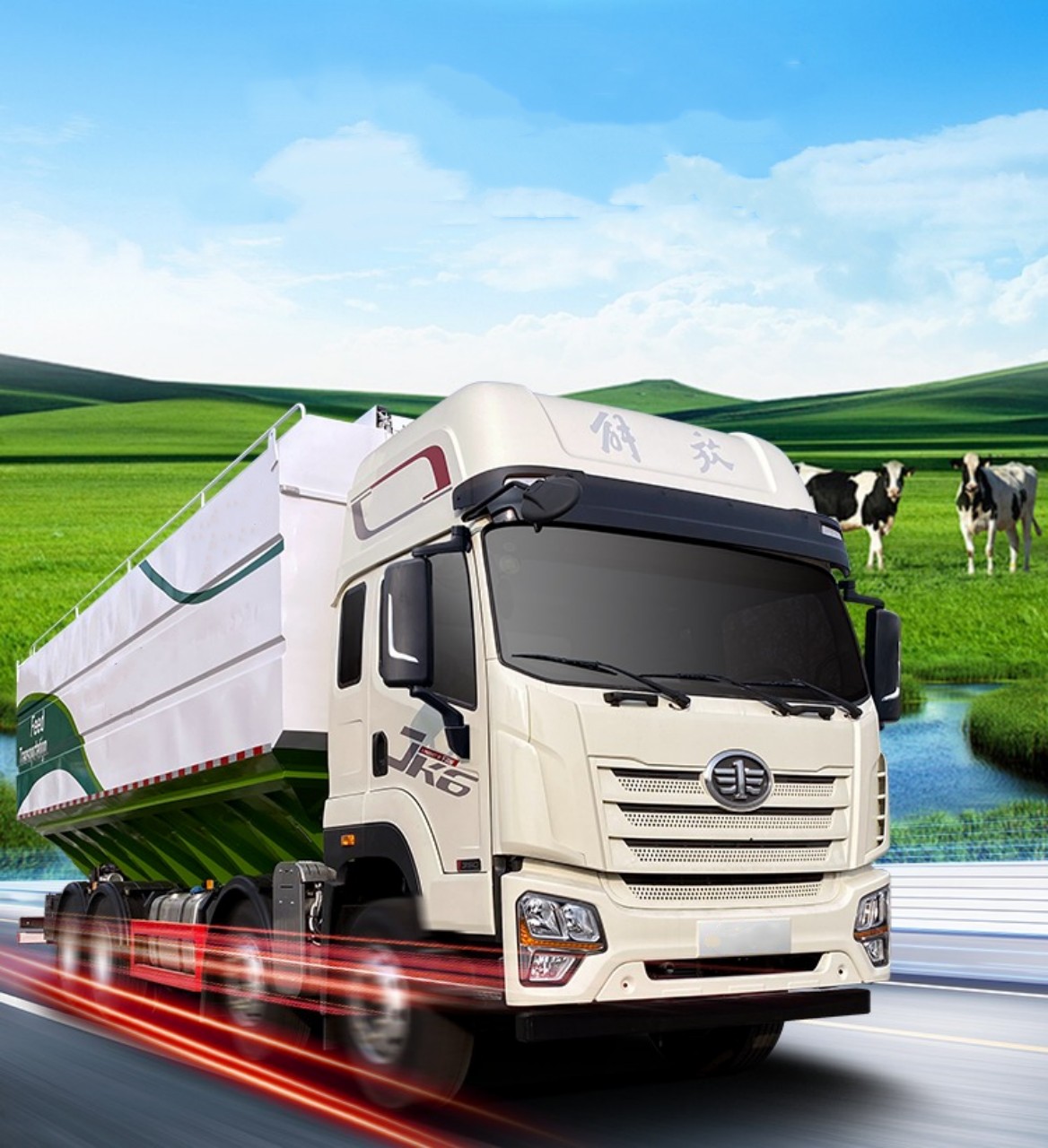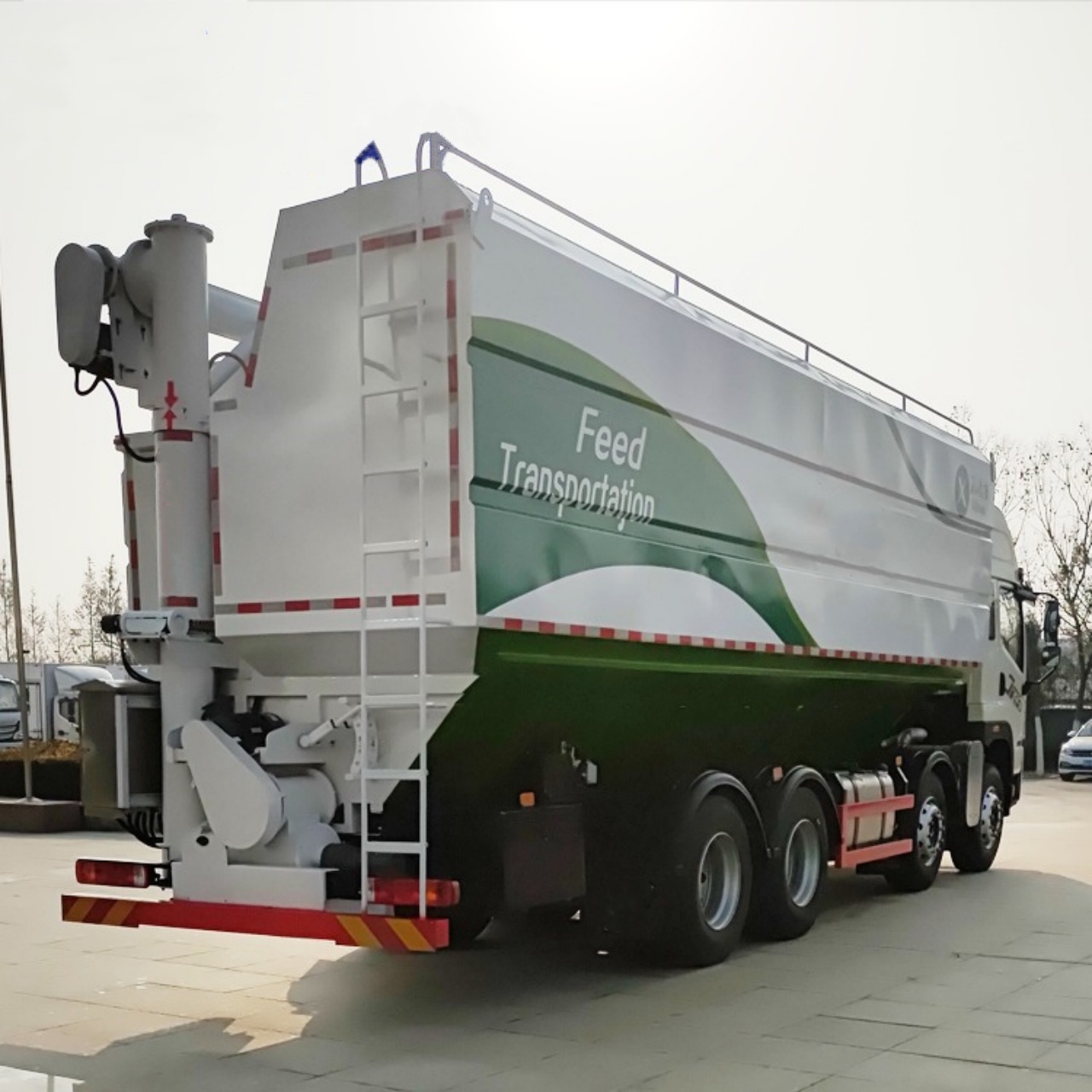Introduction
A bulker truck, also known as a bulk transport truck or dry bulk tanker, is a specialized vehicle designed for the transportation of dry bulk materials such as cement, grain, flour, fly ash, sand, and other powdered or granular substances. These trucks play a crucial role in industries like construction, agriculture, and manufacturing, ensuring the efficient and safe delivery of bulk materials over long distances.
This article provides an in-depth look at bulker trucks, their design, types, working mechanisms, and applications.
Design and Structure of a Bulker Truck
Bulker trucks are designed to handle large volumes of dry bulk materials while ensuring their protection from external contaminants. They generally consist of the following main components:
- Tank Body: The tank is the core of the bulker truck, made from high-strength steel or aluminum alloy. It is designed to withstand high pressures and prevent leakage.
- Compartments: Some bulker trucks have multiple compartments, allowing for the transportation of different materials simultaneously.
- Discharge System: These trucks use pneumatic discharge systems to unload materials efficiently, often utilizing compressed air to push the material out through designated outlets.
- Loading Mechanism: Bulk materials are loaded either through top hatches or via specialized vacuum systems, depending on the truck type.
- Chassis and Suspension: The chassis supports the weight of the loaded tank, and heavy-duty suspension systems help stabilize the vehicle during transport.
- Axles and Wheels: Bulker trucks usually feature multiple axles to distribute weight evenly and comply with road regulations.

Types of Bulker Trucks
Bulker trucks come in various configurations, each designed to cater to specific transport needs. The most common types include:
1. Cement Bulker Truck
These trucks transport powdered cement to construction sites or concrete batching plants. They have an airtight tank to prevent moisture ingress, which could cause the cement to harden.
2. Grain Bulker Truck
Used in the agricultural sector, grain bulkers transport cereals like wheat, corn, and rice. Their tanks are designed to keep the grains free from contamination and moisture.
3. Fly Ash Bulker Truck
Fly ash is a byproduct of coal combustion and is commonly used in cement manufacturing. Fly ash bulkers are equipped with high-pressure pneumatic discharge systems to unload the material efficiently.
4. Sand and Aggregate Bulker Truck
These trucks transport fine materials like sand and small aggregates to construction sites. They are designed for easy unloading and minimal material loss.
5. Flour Bulker Truck
Flour bulkers are commonly used in the food industry, ensuring the safe transportation of flour and other fine powders.
How Does a Bulker Truck Work?
The operation of a bulker truck involves 3 main processes: loading, transportation, and unloading.
1. Loading
- Dry bulk materials are loaded through top hatches using gravity-fed conveyors or vacuum suction systems.
- Some bulkers have automated loading mechanisms that reduce spillage and improve efficiency.
2. Transportation
- The truck travels to the destination, ensuring the material remains secure and free from contamination.
- The vehicle’s suspension and axle configuration help maintain stability on different terrains.
3. Unloading
- Most bulk trucks use a pneumatic discharge system, which involves compressed air pushing the material through pipelines.
- Gravity-based discharge systems are used for materials like grains, where the material flows naturally from the tank.

Applications of Bulker Trucks
Bulker trucks serve a wide range of industries due to their efficiency in transporting large quantities of dry bulk goods. Some of the key applications include:
1. Construction Industry
- Cement, sand, and fly ash bulkers supply essential materials for building and infrastructure projects.
- They ensure a steady supply to concrete plants, reducing downtime.
2. Agriculture Sector
- Grain bulkers transport harvested crops from farms to storage facilities or processing plants.
- They play a key role in food supply chains, ensuring the timely delivery of essential agricultural products.
3. Manufacturing Industry
- Many manufacturing plants rely on bulkers to transport raw materials like flour, plastic pellets, and chemicals.
- These trucks help in maintaining production efficiency and reducing packaging waste.
4. Mining Industry
- Sand, gravel, and other mined materials are transported using bulkers.
- These trucks help in the efficient movement of materials from extraction sites to processing units.
Advantages of Bulker Trucks
Bulker trucks offer numerous benefits over traditional material transportation methods, including:
- Increased Efficiency: They can transport large volumes in a single trip, reducing the number of journeys needed.
- Cost-Effectiveness: By reducing the need for packaging and manual handling, they lower transportation costs.
- Material Protection: Airtight compartments prevent contamination and moisture ingress.
- Automated Unloading: Pneumatic discharge systems allow for fast and efficient unloading, reducing labor costs.
- Environmental Benefits: Bulk transport reduces packaging waste and carbon emissions compared to bagged material transport.

Challenges and Considerations
Despite their advantages, bulker trucks also come with certain challenges:
- High Initial Investment: The cost of purchasing and maintaining bulker trucks can be high.
- Specialized Equipment: Loading and unloading require specific infrastructure, such as compressors and pipelines.
- Regulatory Compliance: Different countries have varying weight and axle regulations that impact operations.
- Driver Training: Operating a bulker truck requires specialized skills, particularly in handling the pneumatic discharge system.
Conclusion
Bulker trucks are indispensable in various industries, providing a reliable and efficient way to transport dry bulk materials. Their specialized design, diverse applications, and operational advantages make them a crucial component of modern logistics and supply chains. While they come with certain challenges, their benefits far outweigh the drawbacks, making them a preferred choice for bulk material transportation worldwide.
Whether in construction, agriculture, manufacturing, or mining, bulker trucks continue to revolutionize the way bulk materials are transported, ensuring efficiency, cost savings, and material protection in every journey.


